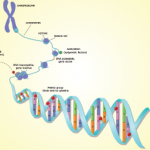NEW YORK (Reuters Health)—Dual energy computed tomography (DECT) can differentiate cardiovascular monosodium urate (MSU) deposits from calcium deposits in patients with gout, potentially identifying those at risk of heart disease, researchers say. Sylvia Strobl, MD, of Medical University Innsbruck and colleagues analyzed calcium scores and MSU deposits in 59 patients with gout (mean age: 59;…
Search results for: obesity
Proposed 2020 E/M Codes Include Reimbursement Changes
Increased reimbursement would reflect value of cognitive care and other time-intensive services provided by rheumatologists.
Diet & Exercise: What’s the Economic Benefit for Overweight & Obese Patients with Knee OA?
New research recently found that, when combined with standard treatment, diet and exercise regimens are cost effective for overweight and obese patients with knee OA…
Contemporary Prevalence of Gout & Hyperuricemia in the U.S.
Using 2007–2016 data from NHANES, a nationally representative survey of American men and women, Chen-Xu et al. set out to estimate the current prevalence rates and decadal trends of gout and hyperuricemia in the U.S.

Common Characteristics in RA Patients Who Don’t Respond to Biologics
At least 6% of patients who used biologic disease-modifying anti-rheumatic drugs (bDMARDs) suffered refractory disease, according to a recent study based on data from the British Society for Rheumatology Biologics Registry for Rheumatoid Arthritis.1 This observational study evaluated the extent of biologic refractory rheumatoid arthritis (RA). The study defined biologic refractory disease as occurring in…

Arizona Project Trains Rural Clinics to Triage & Refer Rheumatic Disease Cases
Dominick Sudano, MD, an assistant professor at the University of Arizona and rheumatologist at Banner University Medical Center, Tucson, Ariz., knows how tough it is for patients living in remote areas to obtain a rheumatology consultation. “It’s not unusual for patients living in rural areas of Arizona to wait four to six months for a…

Tips for Interdisciplinary Pain Management in Older Patients
CHICAGO—Rheumatology healthcare providers should embrace collaborative approaches to manage chronic musculoskeletal pain in older adult patients, including models of care that involve multiple providers, patients and their caregivers. That was the message delivered by two speakers in the Interdisciplinary Management of Chronic Musculoskeletal Pain in Older Adults session at the 2018 ACR/ARHP Annual Meeting. “As…

The Latest on Epigenetics in Immune-Mediated Disease
CHICAGO—Because the epigenome has been implicated in a variety of rheumatic conditions, a Basic Research Conference was convened on Epigenetics in Immune-Mediated Disease in conjunction with the 2018 ACR/ARHP Annual Meeting. Melanie Ehrlich, PhD, professor of human genetics and genomics at Tulane University School of Medicine, New Orleans, opened the conference. She has a long…
Does Loss of Skeletal Muscle Mass Increase the Risk of Knee OA?
Obesity is a well-known risk factor for knee osteoarthritis (OA), but data regarding the association of body composition (fat and muscle mass) with the risk of knee OA are lacking. Thus, it is not clear whether the effects of BMI, typically interpreted as effects of obesity, are truly due to excess adiposity rather than to overall loading due to the combined weight of body mass. Misra et al. undertook this study to examine the longitudinal association of body composition categories based on fat and muscle mass with the risk of incident knee OA…
Coding Corner Answers: Billing for Joint Injection within a Series
Take the challenge. CPT: 20611-LT, J7325-EJ ICD-10: M17.12, E66.01, Z68.41 Coding/Billing Rationale No evaluation and management (E/M) code was added because there was no significant and/or separate identifiable reason for an E/M service to be billed with this scheduled visit for her series of injections. The joint injection was billed with ultrasound guidance due to…
- « Previous Page
- 1
- …
- 8
- 9
- 10
- 11
- 12
- …
- 26
- Next Page »